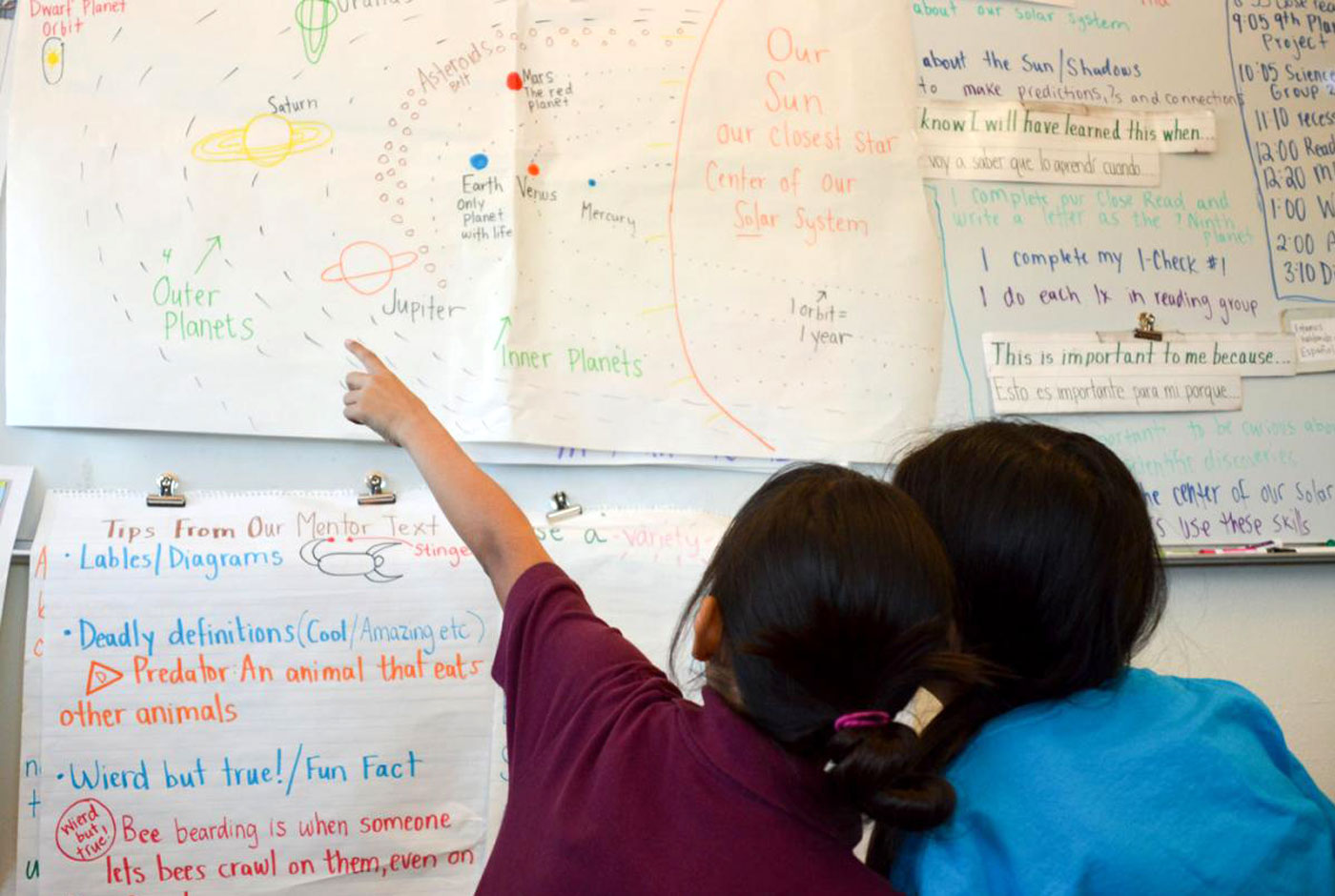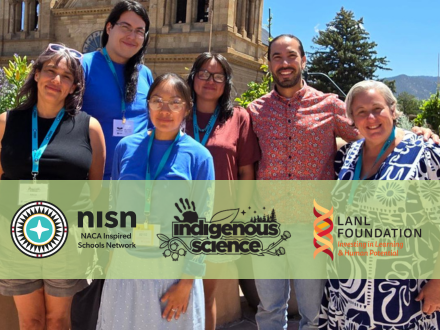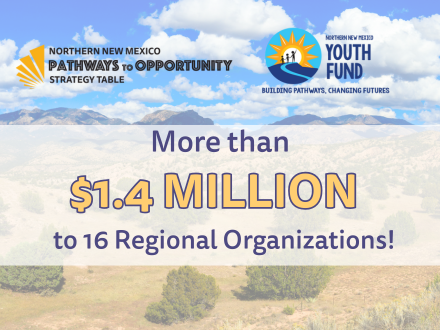Ms. Jamie Gonzales
Policy Division, NM Public Education Department, Room 101
300 Don Gaspar Avenue, Santa Fe, NM 87501
RE: LANL Foundation’s Comment on NM STEM–Ready Standards
Dear Ms. Gonzales:
The Los Alamos National Laboratory (LANL) Foundation respectfully submits to the Public Education Department (PED) feedback and comment on the proposed repeal of 6.29.10 NMAC – Science, to be replaced by 6.29.10 NMAC – New Mexico STEM-Ready Science Standards.
While we applaud PED for proposing new science standards to replace the current 2003 science standards, we do not support the NM STEM Ready Standards (NMSRS) as proposed. Instead, we support the adoption of the Next Generation Science Standards (NGSS) without changes, including the elimination of the proposed New Mexico-centric standards.
We identify four major deficiencies in the proposed standards and the process by which they were developed.
I. Modifications to NGSS:
There are 211 NGSS standards. The NMSRS is identical to these except for nine revisions and one omission. We support PED using NGSS as a basis for the NMSRS, but NGSS should not be modified. Further, the modifications and omission in the NMSRS contravene the principles of inquiry science, primarily in three content areas: evolution, the age of the earth, and man-made climate change. While we understand that some of these scientific results might be in conflict with religious or cultural beliefs, LANL Foundation holds firm in its support of science and the practices that comprise science and engineering being taught in public schools without adulterations.
A goal for NGSS was to create a set of research-based, up-to-date K–12 science standards. The NGSS was developed through extensive scientific research, in partnership among the National Research Council (part of the National Academy of Sciences), the National Science Teachers Association, and the American Association for the Advancement of Science. The standards provide all students an internationally benchmarked science education.
The NGSS is based on a Framework for K–12 Science Education and will prepare students for college and careers. The NGSS was developed collaboratively with states and other stakeholders in science, science education, higher education, and industry. Additional review and guidance were provided by an advisory committee composed of nationally recognized leaders in science and science education, as well as business and industry.
This process produced a set of high-quality, college- and career-ready standards available for state adoption. Eighteen states, plus Washington, D.C., have adopted them without changes. Many New Mexico school districts and the Santa Fe Indian School have been using them for years. The proposed revisions significantly diminish the rigor, accuracy, and possible outcomes of science education. By allowing politics to supersede best educational practices, the proposed revisions re-enforce the root causes of the weaknesses in the New Mexico education system.
II. New Mexico-centric Standards:
We do not support the proposed NM-centric standards. NGSS was designed to give local educators the flexibility to design classroom learning experiences that stimulate students’ interests in science and prepare them for college, careers, and citizenship. Additional NM standards are not needed. Instead, we encourage teachers to address the standards using local context as a basis for their instructional practices, highlighting the uniqueness of the New Mexico environment, geology, geography, culture, and workforce into their NGSS lesson plans. Further, these proposed NM standards were not vetted by educators, scientists, or other stakeholders in science education. Finally, the beauty of NGSS is the focus on students learning scientific and engineering practice. Additional standards not only would place unnecessary burdens on teachers, but also shift the focus away from practice and back to the content emphasis of the current 2003 standards.
III. Oversimplifying the Standards:
The proposed NMSRS needs to state explicitly that the full framework of learning science in NGSS is included. Within NGSS, there are three distinct and equally important dimensions to learning science. These are: 1) disciplinary core ideas, 2) science and engineering practices, and 3) cross-cutting concepts. The proposed NMSRS does not include these three dimensions. The first dimension targets key content that should be addressed and spiraled across each grade levels, for instance force and motion, gravity, cellular structure, or sound. The second dimension refers to the practices that embody the nature of science and engineering. hese include asking questions, analyzing and interpreting data, and engaging in argument from evidence. The third dimension provides lenses through which students are able to develop a more sophisticated understanding of concepts in science and engineering. Examples include cause and effect, stability and change, structure and function, systems and system models.
The dimensionality of NGSS was intended both to shift pedagogical practice so that learning science was more closely aligned or matched with what science is, and to create performance expectations matching what we know of as best practice within the learning sciences. Without the three dimensions being made explicit, it will be difficult to design appropriate professional development, and teaching practice may not change, which could lead to low student engagement and lower student performance. The NGSS provides the framework for teachers to improve their practice and for students to gain the skills they need to succeed including critical thinking, communication, teamwork, and creativity.
IV. Lack of Transparency:
The development of these proposed standards lacks transparency. The Math and Science Advisory Council, created in 2007 pursuant to the Math and Science Education Act (SB552) to advise the PED Math and Science Bureau, was consulted over seven years and recommended full adoption of NGSS. However, the collective expertise and voice of the ouncil was ignored, with no involvement in therevisions leading to these objectionable changes proposed by the PED.
Furthermore, there has been no public explanation of why these changes are being proposed as well as from whom and from where they came.
We wish to support and work with PED to advocate for additional funding to bring more robust science education to our State and hope to continue to do so. However, these proposed standards do not reflect our principles as individuals or as an organization. Therefore, we cannot support them.
The LANL Foundation, as an institution funded initially by Congress in association with Los Alamos National Laboratory, one of the leading research laboratories in the world, fully supports science and the scientific method. Adopting these proposed standards could hurt recruitment and retention of scientists and engineers in New Mexico, as well as high-tech companies. Further, adopting these standards jeopardizes our credibility nationally with the education, business, and science communities and would be a significant blow to our economy.
We believe that science education is central to the lives of all Americans. Thus, we ask that PED drop the proposed revisions and adopt the full NGSS as is, in accord with the 2013 recommendation of the Math and Science Advisory Council. Because the NGSS represents a major change in teaching practice, it is critical for success that there is a strategic implementation plan over the course of three to five years that is developed in conjunction with educators across the State to assure high-quality professional development, thoughtful selection of curriculum, and careful development and deployment of assessment tools.
The LANL Foundation stands ready to work with PED and others as an enthusiastic and experienced partner in crafting this national model for science education in New Mexico.
Sincerely,
LANL Foundation Board LANL Foundation Staff


